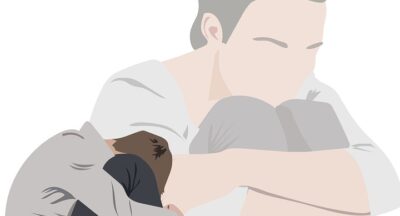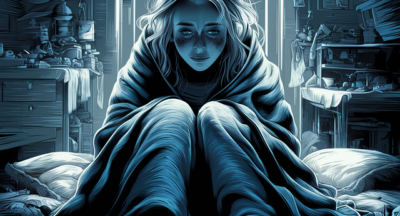
Nasty side effects of depression with long term romantic relationships. How is your chronic depression affect your existing relationship and finding solutions to avoid losing the people you care about the most? Here are some valid strategies to make things work.
Depression is not just an individual struggle; it has far-reaching impacts on those closest to you, especially your romantic partner. When chronic depression enters a long-term relationship, it can create invisible barriers, misunderstandings, and unintended harm, putting even the strongest bonds to the test.
To safeguard your connection with the person you love, it’s important to understand how depression affects your relationship and learn strategies to address these challenges together.
The Impact of Chronic Depression on Relationships
- Emotional Disconnection: Depression often numbs emotions, making it difficult to express love, joy, or gratitude. Partners may feel neglected or unappreciated, mistaking the withdrawal for a lack of care.
- Communication Breakdowns: Negative thought patterns and feelings of hopelessness can lead to irritability or silence, reducing open and effective communication. This can make resolving conflicts or discussing needs increasingly difficult.
- Increased Dependency: Depression can lead to over-reliance on your partner for emotional support, potentially overwhelming them and disrupting the balance in your relationship.
- Lowered Intimacy: Fatigue, self-esteem issues, and a lack of interest—common symptoms of depression—can reduce physical and emotional intimacy, creating distance between partners.
- Guilt and Shame: People with depression often feel guilty for how their condition affects their partner, which can lead to further isolation and avoidance, compounding the problem.
- Tension and Resentment: Over time, the strain of dealing with untreated depression can create resentment in your partner, as they may feel their needs are being sidelined.
Finding Solutions to Avoid Losing the Ones You Love
While depression is a serious challenge, it doesn’t have to be the undoing of your relationship. With intentional efforts, open communication, and the right strategies, you can navigate this storm together.
- Acknowledge the Problem: The first step is recognizing how depression is affecting your relationship. Have an honest conversation with your partner about how you feel and how it impacts them. Acknowledging the issue lays the foundation for improvement.
- Seek Professional Help: Therapy is crucial for managing depression. Individual counseling can help you process emotions, while couples therapy can provide tools for navigating the relational challenges caused by depression.
- Practice Open Communication: Share your feelings and struggles with your partner. Encourage them to share theirs, too. Transparency fosters understanding and prevents misinterpretations of your behavior.
- Set Realistic Expectations: Depression recovery is a journey, not a quick fix. Set small, attainable goals for your personal growth and your relationship. Celebrate progress, no matter how minor it seems.
- Prioritize Self-Care: Taking care of yourself is essential for improving your mental health. Focus on activities that help you recharge, such as exercise, mindfulness practices, or hobbies that bring you joy.
- Avoid Codependency: While your partner’s support is invaluable, avoid relying solely on them to “fix” you. Lean on other sources of support, such as friends, family, or support groups.
- Educate Your Partner: Help your partner understand depression by sharing resources or inviting them to therapy sessions. When they see your condition as a shared challenge rather than a personal flaw, they’ll feel more equipped to help.
- Build a Support Network: Beyond your partner, establish a circle of trusted friends or family members who can offer additional emotional support. A diverse support system can reduce the burden on your relationship.
- Reignite Intimacy: Start small—a kind word, a thoughtful gesture, or a simple date night. Rebuilding physical and emotional closeness takes time but can strengthen your bond.
- Focus on Gratitude: Depression often highlights the negatives, but practicing gratitude—even for small things—can help shift your perspective and remind your partner of your appreciation for them.
How to move forward despite these challenges
Chronic depression is a tough adversary, but with patience, empathy, and consistent effort, it doesn’t have to jeopardize your relationship. Remember, you and your partner are a team. Facing depression together can deepen your connection and help you grow stronger as individuals and as a couple. Don’t hesitate to seek professional help or use the strategies above to ensure you preserve and nurture the bond with the person you care about most.

dr.dan
Related Posts
Complexities of S.A.D (Seasonal Affective Disorders): Coping with mood disorders related to winters and cold temperatures. Effective Strategies that can work during these long winter months to alleviate these moods.
Seasonal Affective Disorder (SAD) is a type of mood disorder that recurs...
The ugly friend of depression: How dietary changes can help you manage your depression symptom
Consuming appropriate food (eliminating refined sugar and heavy...
The many ways that depression influences sleep patterns: From insomnia to hypersomnia (not always symptom of narcolepsy).
Depression can significantly influence your daily sleep in various ways....
Carrying the weight of depression symptoms due to loneliness. How to break the isolation cycle post pandemic. Effective strategies that can help you get back into society and mingle with other human beings.
The COVID-19 pandemic reshaped social interactions, forcing many into...




